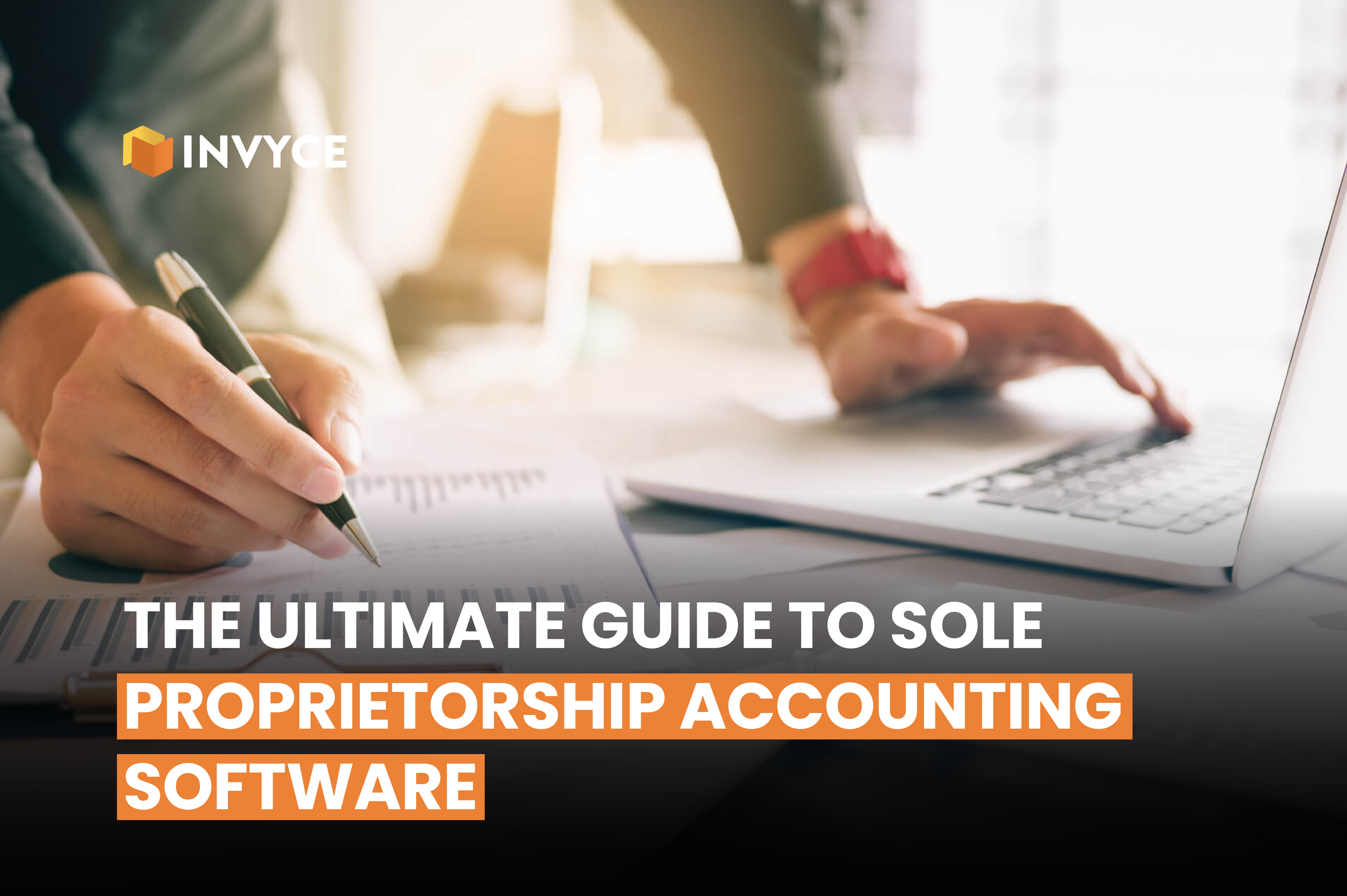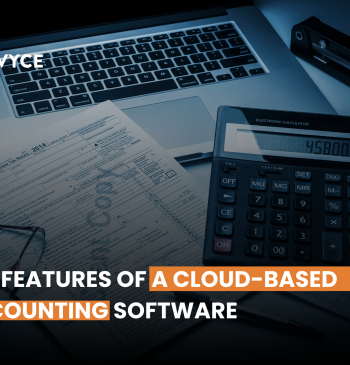19 Aug

Managing the financial aspects of a sole proprietorship can be a complex and time-consuming task, however, it’s essential for the success and sustainability of your business. Advanced accounting software developed specifically for sole proprietors can significantly streamline these processes, offering powerful tools to manage income, expenses, and taxes efficiently. However, to truly benefit from such software, it’s essential to understand not just what these tools do, but how to utilize them effectively.
In this guide, we’ll explore into the advanced features of sole proprietorship accounting software and explore how you can use them to optimize your financial management and drive business growth.
1. Ease of Use
Accounting software should simplify your life, not complicate it. The best software for sole proprietors is intuitive and easy to use, allowing you to quickly access the features you need without a long learning process. Instead of spending hours trying to figure out how to input data or generate reports, you should be able to do these tasks seamlessly. Look for software that offers guided setups, clear menus, and helpful tips that provide immediate help when you need it. This way, you can streamline your workflow, reduce errors, and free up time to focus on your business growth.
2. Income and Expense Tracking
Managing your income and expenses effectively starts with precise tracking. Advanced accounting software allows you to categorize every transaction, giving you a clear picture of where your money is coming from and where it’s going. To maximize this feature, take the time to customize categories that reflect your business’s unique needs. For instance, if you operate in multiple revenue streams, set up separate categories for each. This will help you identify which areas of your business are most profitable and where you might need to cut back. The software should also allow you to attach notes or receipts to each transaction, making tax time much less stressful.
3. Invoicing
Invoicing isn’t just about getting paid; it’s about maintaining cash flow and professional relationships. With the right software, you can create and send invoices quickly, track their status, and even set up automatic reminders for overdue payments. To make the most of this feature, customize your invoices with your branding and include clear payment terms. Consider setting up automatic late fees or discounts for early payments, as this can incentivize timely payment. Additionally, choose software that integrates with payment processors to make it easier for clients to pay you, speeding up your cash flow.
4. Tax Management
Tax season doesn’t have to be a dreaded time of year if you’re proactive with your tax management. Advanced accounting software should offer robust tax features that help you stay on top of your obligations throughout the year, not just at year-end. Set up your software to automatically track deductible expenses and generate quarterly tax estimates. This way, you avoid surprises at tax time and can plan for your payments in advance. Moreover, use the software to categorize transactions according to tax classifications, which will save you time when preparing your returns and reduce the likelihood of costly mistakes.
5. Bank Reconciliation
Bank reconciliation is a crucial task that, if done correctly, ensures the accuracy of your financial statements. The best accounting software simplifies this process by automatically importing your bank transactions and matching them with your records. However, don’t just rely on automation; take the time to review and confirm each match. This hands-on approach helps you catch any discrepancies, such as missed transactions or bank errors, that could lead to financial inaccuracies. Set a routine to reconcile your accounts regularly—weekly or even daily—to stay on top of your finances and prevent any surprises.
6. Financial Reporting
Financial reports are more than just numbers; they’re tools that provide deep insights into your business’s health. Advanced accounting software offers a range of reports, from profit and loss statements to cash flow analyses, that help you understand your financial position. To truly benefit from these reports, go beyond just viewing them—analyze the trends they reveal. For example, look at your cash flow reports to identify patterns in your income and expenses, or use profit and loss statements to assess the profitability of different aspects of your business. Regularly reviewing these reports enables you to make data-driven decisions that propel your business forward.
7. Inventory Management
If your sole proprietorship involves inventory, managing it effectively is essential to maintaining smooth operations. Advanced accounting software with inventory management features can track stock levels, manage orders, and even forecast future inventory needs. To optimize your inventory management, set up reorder alerts to ensure you never run out of stock. Use the software’s reporting tools to analyze which products are selling the fastest and which are lagging, allowing you to adjust your purchasing strategy accordingly. Additionally, integrating your inventory management with your accounting software provides a more comprehensive view of your business, linking inventory costs directly to your financial reports.
8. Expense Receipts
Storing and managing expense receipts can be a encounter, but it’s a necessary task for audit readiness and accurate financial reporting. The right accounting software allows you to digitize and organize your receipts effortlessly. To streamline this process, make it a habit to upload receipts immediately after each transaction. Use the software’s tagging features to categorize each receipt by type, date, and project, which will save you time when searching for specific documents later. This proactive approach not only keeps your records organized but also ensures you’re fully prepared in case of an audit.
9. Mobile Accessibility
The ability to manage your finances on the go is a significant advantage. Advanced accounting software with mobile accessibility allows you to check your financial status, send invoices, and track expenses from your smartphone or tablet. To maximize this feature, ensure that your software syncs in real-time across all your devices, so you always have the most up-to-date information. Whether you’re traveling, attending meetings, or working remotely, mobile access ensures that you’re never out of touch with your business’s financial health.
10. Data Security
As a sole proprietor, the security of your financial data is paramount. Advanced accounting software should offer top-tier security features, including encryption, multi-factor authentication, and regular backups. To further protect your data, choose software that allows you to control user access levels, ensuring that only authorized individuals can view or modify sensitive information. Additionally, set up automatic backups to a secure cloud service, so your data is safe even in the event of a hardware failure. Taking these steps not only safeguards your financial information but also gives you peace of mind, allowing you to focus on running your business.
11. Scalability
Your business needs will evolve over time, and your accounting software should be able to grow with you. Look for software that offers scalability, providing advanced features as your business expands. For instance, if you plan to hire employees in the future, choose software that can handle payroll processing and employee expense tracking. Consider also whether the software can integrate with other business tools you might customized, such as CRM systems or e-commerce platforms. By selecting scalable software from the outset, you avoid the need for disruptive changes later on, ensuring a smooth transition as your business grows.
12. Customer Support
Even with the most advanced software, there will be times when you need assistance. Responsive customer support is crucial for resolving issues quickly and minimizing downtime. When evaluating software, consider the quality and availability of customer support—look for options that offer 24/7 assistance via multiple channels, such as phone, email, and chat. Additionally, check if the software provides a knowledge base or user community where you can find answers to common questions. Having reliable support ensures that you can keep your business running smoothly, even when challenges arise.
Conclusion
Choosing the right data services for your business isn’t a one-size-fits-all decision. It requires a clear understanding of your current needs, future growth potential, and the technology you’re working with. By focusing on scalability, security, integration, cost-effectiveness, customer support, and data backup and recovery, you can select a service that meets your needs today and grows with you in the future. The goal is to choose a service that doesn’t just work, but one that truly improves your business, giving you the tools and insights you need to stay ahead in today’s data-driven world.
Marjina Muskaan has over 5+ years of experience writing about finance, accounting, and enterprise topics. She was previously a senior writer at Invyce.com, where she created engaging and informative content that made complex financial concepts easy to understand.
Related Post
Copyright © 2024 – Powered by uConnect



Marjina Muskaan